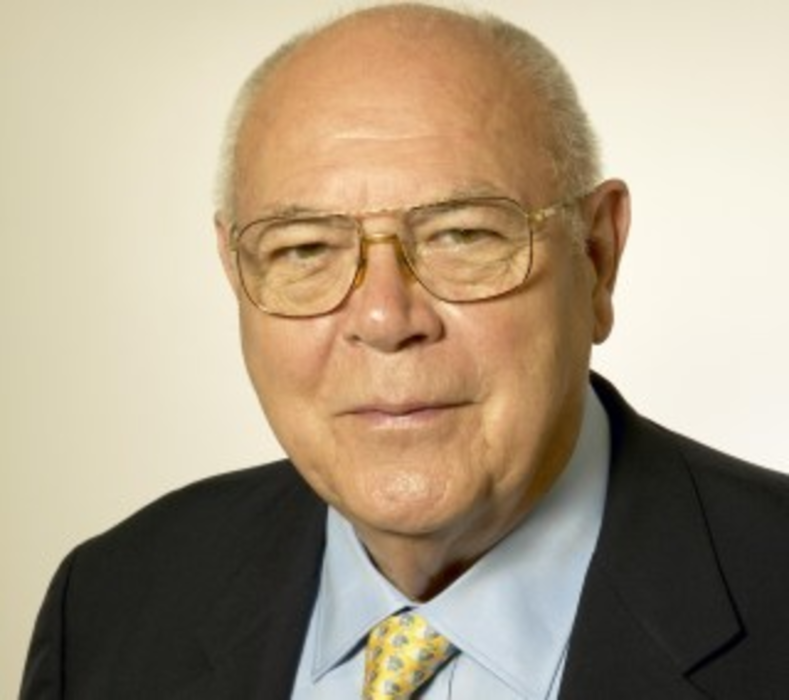Don E. Schultz’s consultancy is called Agora, like the open Greek forums where people gathered to freely exchange information and ideas. Schultz helped establish an Agora for the marketing world in the 1980s, when he scuttled Northwestern University’s renowned graduate advertising program and replaced it with a strange duck called Integrative Marketing Communications (IMC). It took courage—the rare attribute sought in Caples Award winners—so it’s fitting that Schultz is the recipient of this year’s Emerson Award, a special honor presented as part of Direct Marketing News‘s Caples Awards.
But in an interview with DMN, Schultz confides that he finds little courageous about marketing today. Here’s more from the master, who shares the back-story of his christening as the “Father of IMC” and his general disappointment with the quality of its execution.
Q: Take us back to the days of the birthing of IMC.
A: The advertising program at Northwestern in the 1970s was maybe the top graduate program in the world. We were preparing students for the big-time agencies in New York, Chicago, and Minneapolis. Then the J. Walter Thompsons, Ogilvys, and Leo Burnetts found that clients were shifting money to PR and direct marketing. They said, “If that’s where the money’s going, we need to be involved in that.” Their solution was to go out and buy a PR firm or a marketing communications group, but they found it a challenge to put the pieces together.
Q: To integrate them.
A: Exactly. About that time, a fellow named Dick Christian joined us. He had sold his Burson-Marsteller agency to Y&R and wanted to enter academia. Then we found out that Ted Spiegel of the Spiegel catalog company was retiring. We lured him out to Northwestern and then got Tom Harris of Golin Harris to start our corporate communications group. We forecast that the future didn’t need more advertising people. But how do you take all of these diverse communications systems and put them all together? This was the mid-1980s, before the Internet.
Q: That was an all-star team.
A: We had the best people in the world and we got the program started and we all taught for several years.
Q: What was the defining moment of your integrated movement?
A: The beginning. We had to convince Northwestern to dismantle the advertising program and go off into this new area with no guarantee of success. Dick Christian and I made a presentation to Arnold Webber, the president of the university. We said we need to change this and here’s what we want to do. And he said, “Go; go do it, then.”
Q: What? Just like that?
A: The air was so rare I’ve never smelled it again. We graduated the first class in 1991. A lot of this was driven by direct marketing. We got very involved in data analytics and
said this is where it’s going to go. The direct marketers can measure results where the traditional ad people couldn’t. We ran an interdisciplinary program with the computer science and engineering schools.
Q: How did the ad agencies react?
A: They hated us. It’s still one of the biggest problems agencies have today. They don’t know what to do with digital. When you’re the world’s greatest authority on making TV
commercials, that’s all you want to do. You don’t want to confront the fact that customers are in control.
Q: Tell us about a few successful graduates.
A: Shekar Swamy is the managing director of RK Swamy BBDO and Hansa, two of the largest agencies in India. He’s taken the concept of IMC and reformatted it all over the world. He’s developed a unique agency model in the U.S. He puts his people inside the client’s organization and operates almost as if his people are the inside marketing group.
Another is John Christiansen, who developed a vertical agency focused on dentists. It is truly integrated. He has about 700 dentists in the U.S. He does everything for them, including direct marketing, database management, signage, and even scripts for receptionists. He’s now moving into Europe. An absolutely brilliant organization.
Q: Caples award selections are heavily weighted toward marketers who take chances. How would you define a “courageous” marketer? Do you see many out there?
A: No courage at all. Marketers still want to maintain the status quo. They’re still all internally focused: “How do we sell what we already make?” It’s a sales-oriented approach. The big difference between mass marketers and direct marketers is at least the latter get some feedback. But most still want to send their message through mass media without ever knowing whether it worked. I hear this phrase more than ever now: “Maybe this will last for another three or four years until I retire.”
Q: Seriously, can you think of any courageous initiatives that are out there in the marketplace?
A: Perhaps the most courageous of all is Apple. Retailing for Apple is, “Can we help you solve your problem?” It’s not big red arrows and sales signs. No sales quotas for associates. [Management] tells them to spend as much time as they need and find out what the customer wants. They reinvented retail and no one even recognizes it.







